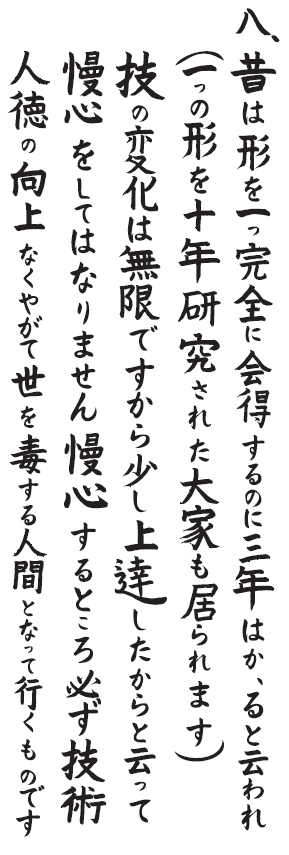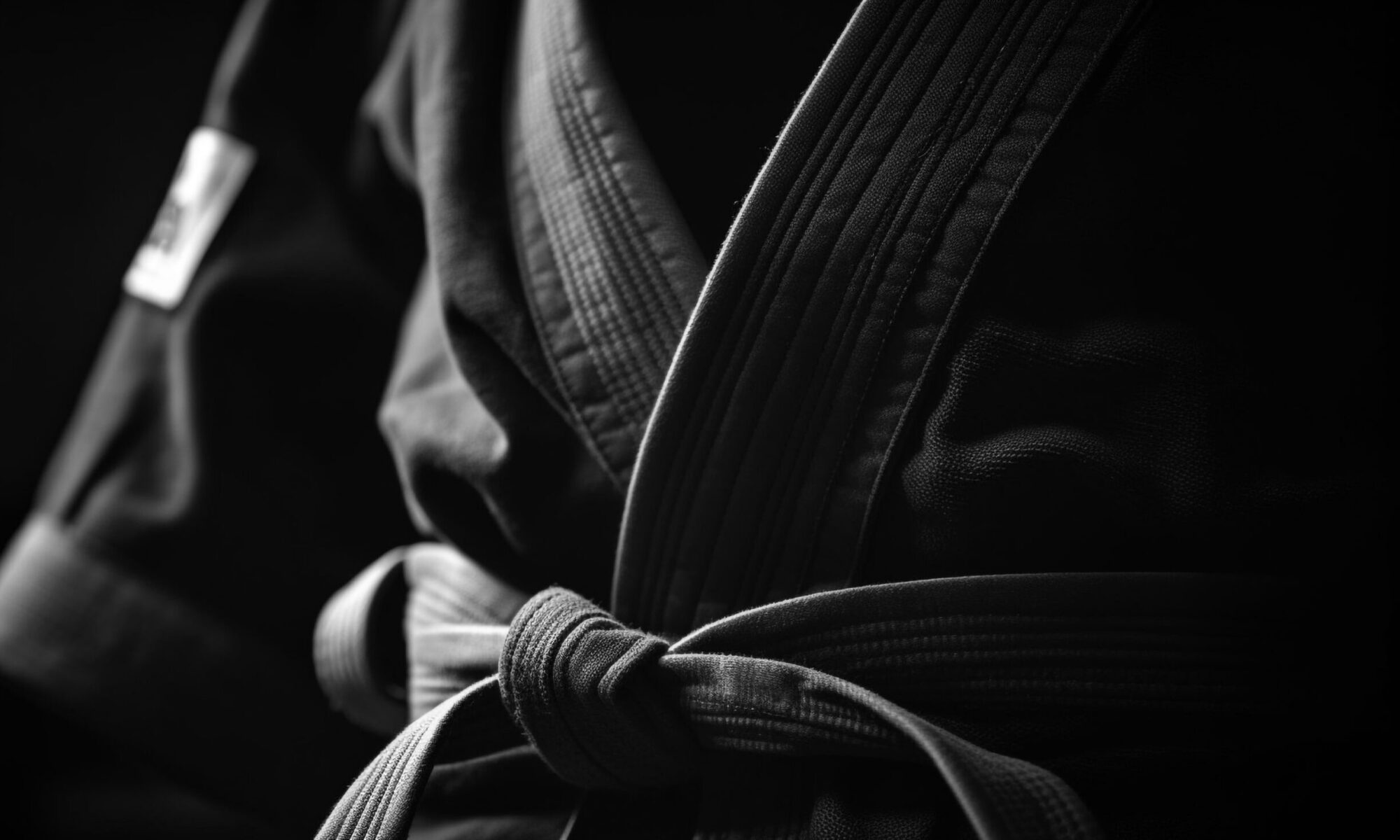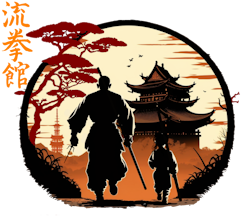Like the Dojo Kun, the Guiding Principles have a special place in dojos which are descended from Taika Seiyu Oyata.
Unlike the Dojo Kun though, the Guiding Princoples are not shared with other Japanese or Okinawan martial arts schools.
Taika Seiyu Oyata received these principles from Nakamura Shigeru Sensei during the time Taika Oyata studied Nakamura’s Okinawan Kempo.
Students are required to learn these guiding principles and encouraged to apply them in daily life.
The language used in the Guiding Principles can be difficult to understand. These paragraphs are not written using words and phrases that we would normally choose. Why is this?
Taika Oyata and his closest students worked hard to translate the deeper meaning of the written language and selected words that Taika felt best expressed the lesson he wanted to emphasise. We leave these unchanged to remember these lessons and to remind us that we learn from the past, in order to navigate the future.
When you see words like “master” and “superior”, remember that these words were used differently in Okinawan martial arts dojos in the 1950’s – they did not have the same weight or meaning that we give these words today.
Guiding Principle 1
Junior Version
Practice the way you are taught. This way, you will learn faster and make fewer mistakes.
Adult Version
When asking to be taught, be submissive and free from prejudice, accept the teachings as shown. In this way, you will not establish your own peculiarities or bad habits.

Guiding Principle 2
Junior Version
Be polite to all members of our dojo. Set a good example and demonstrate humbleness.
Adult Version
Be polite and obedient to the master and other superiors. Be courteous among fellow students and followers. You must strive to develop humbleness.

Guiding Principle 3
Junior Version
Train hard to build a strong mind and body.
Adult Version
Cultivate a spirit of perseverance, you will develop a healthy body if you have strength of mind and train fearlessly.

Guiding Principle 4
Junior Version
Use what you learn to help build a peaceful and free world.
Adult Version
Strive to be a warrior for the construction of a peaceful and free world by using the character building, morality and spirituality contained in the way of karate.

Guiding Principle 5
Junior Version
In daily life, do not fight or argue.
Adult Version
In daily conduct, do not encourage fights or arguments.

Guiding Principle 6
Junior Version
sdf
Adult Version
Move from easy to difficult, and from simple to complicated. More time is required to train longer and harder as you progress. Do not hurry or engage in senseless or reckless practice. Develop gradually.

Guiding Principle 7
Junior Version
Be patient as you learn. Take time to understand the movements and tools we train with.
Adult Version
Become familiar with the use of the makiwara and other training equipment. Train yourself to use your fists, body and positions. Be patient and study earnestly the kata and matches. Do not aim for hurried success.

Guiding Principle 8
Junior Version
Take time to learn things properly. Kempo takes a lifetime to master, and there is always more to learn.
Adult Version
In the past, a single kata was studied for three years. A long time ago a particular master analyzed a single kata for ten years. Do not think you have mastered a kata and become proud of your success. Pride will lead you to hurt your achievement in virtue and technique. Thus pride can be like a poison to the world.

Guiding Principle 9
Junior Version
Make sure you practice everything you have learned. You must know how something is used, not just how to perform it.
Adult Version
Take care not to develop only your favorite technique, neglecting others, because that will leave a weakness in your defense. Be cautious about becoming too theoretical or technical because these too are weaknesses.

Guiding Principle 10
Junior Version
Ask sensible and careful questions to make sure you understand what you are learning.
Adult Version
Ask questions freely of the master or other superiors because you must strive to understand what you are learning.


